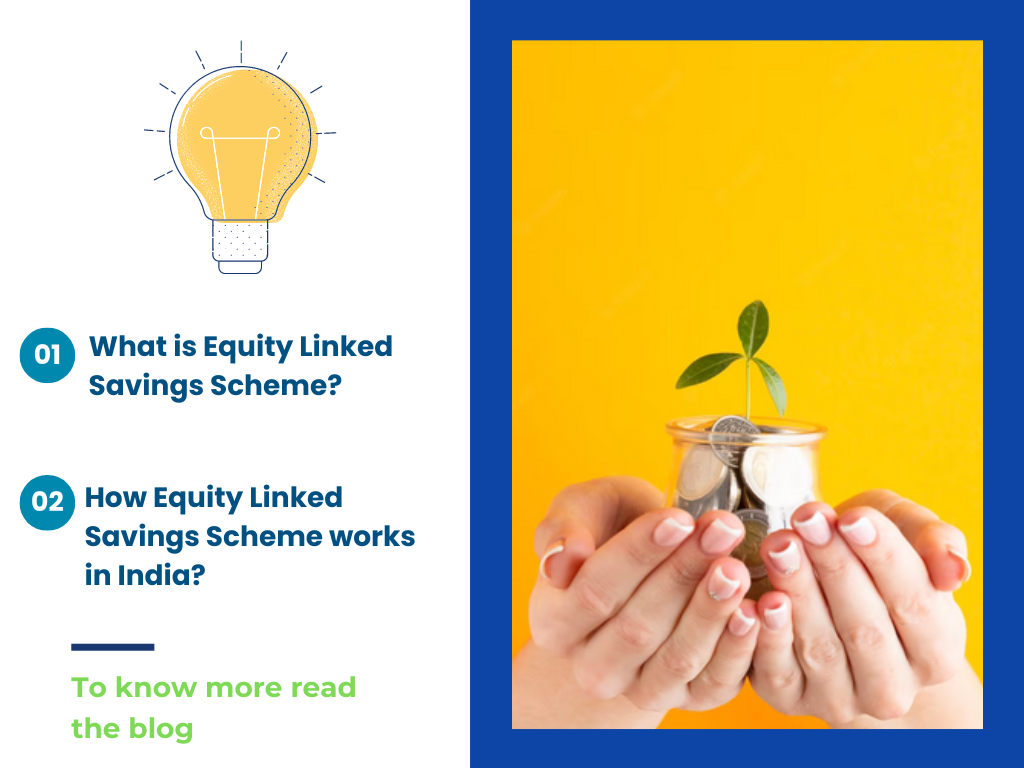What is Equity Linked Savings Scheme? How Equity Linked Savings Scheme works in India?
An Equity Linked Savings Scheme (ELSS) is a type of mutual fund in India that offers tax benefits under Section 80C of the Income Tax Act. ELSS funds primarily invest in equity and equity-related securities, making them an attractive option for investors seeking tax savings and potential long-term capital appreciation.
Here's how an Equity Linked Savings Scheme works in India:
Investment in ELSS: Investors can invest in ELSS funds by purchasing units of the scheme from the fund company or through authorized intermediaries. The minimum investment amount varies among fund houses.
Lock-in Period: ELSS funds have a mandatory lock-in period of three years. During this period, investors cannot redeem or sell their units. The lock-in period starts from the date of each investment installment.
Portfolio Construction: The fund manager of an ELSS fund invests the collected funds primarily in equity and equity-related instruments. The portfolio composition may include stocks of companies across market capitalizations, sectors, and themes.
Potential for Capital Appreciation: ELSS funds aim to provide long-term capital appreciation by investing in equity securities. The performance of the fund is influenced by the performance of the underlying stocks in the portfolio. Higher returns may be expected over the long term, although they are subject to market fluctuations and risks associated with equity investments.
Tax Benefits: Investments made in ELSS funds are eligible for tax deductions under Section 80C of the Income Tax Act. Investors can claim deductions of up to Rs. 1.5 lakh in a financial year for their investments in ELSS funds. However, it's important to note that tax benefits are subject to the prevailing tax laws and individual circumstances. Additionally, gains from ELSS funds held for more than three years are tax-free.
Dividends and Growth Option: ELSS funds offer both dividend and growth options. Under the dividend option, investors receive dividend payouts, if declared by the fund, which are subject to dividend distribution tax. In the growth option, the returns are reinvested in the fund, leading to potential compounding of capital over time.
Redemption After Lock-in Period: After the completion of the three-year lock-in period, investors can redeem their ELSS fund units if they wish to exit the investment. The redemption process can be done directly with the fund company or through authorized intermediaries.
ELSS funds in India are regulated by the Securities and Exchange Board of India (SEBI). SEBI sets guidelines and regulations to ensure investor protection, transparency, and fair practices for ELSS funds.
Before investing in an Equity Linked Savings Scheme in India, investors should consider factors such as the fund's investment objective, historical performance, expense ratio, lock-in period, tax benefits, and the reputation and track record of the fund house and manager. It's advisable to consult with a tax advisor or financial professional to understand the tax implications and suitability of ELSS funds based on individual circumstances.


